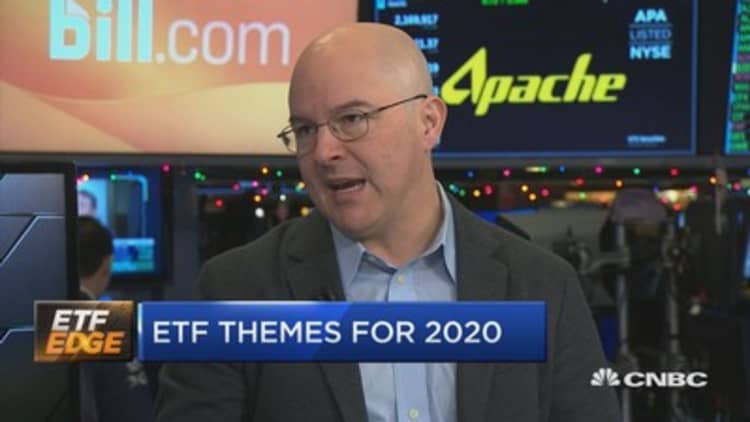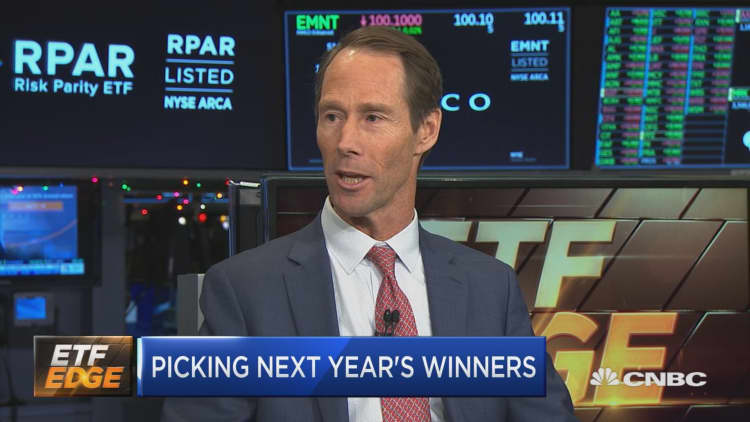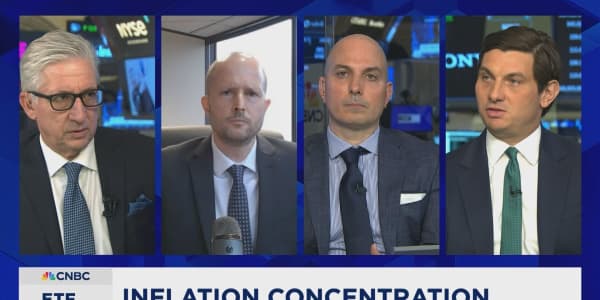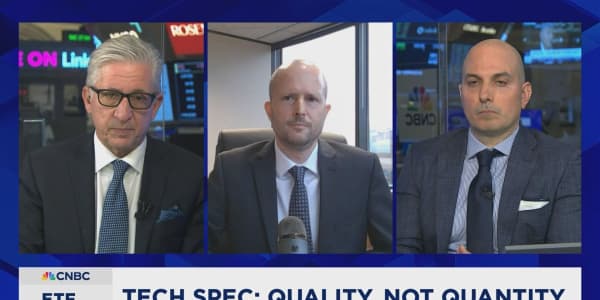
Wordplay aside, Wall Street doesn't actually have 2020 vision.
In reality, the new year will likely bring new surprises to many areas of the market including the exchange-traded fund space, where some upcoming changes could fundamentally transform the industry, experts say.
Here's what several ETF industry professionals have told CNBC's "ETF Edge" about possible surprises for investors in 2020.
Nontransparency is key
The biggest 2020 surprise ETF watchers are anticipating has to do with one of 2019's biggest stories: the SEC's approval of nontransparent ETFs, or funds that aren't required to disclose their portfolio holdings daily, but quarterly.
With the T. Rowe Price, Fidelity, Natixis and Blue Tractor preliminary approval for their own nontransparent funds, is set to expand quickly, ETF.com managing director Dave Nadig said in a Dec. 12 interview.
"We'll see a bunch of them launch, I'm predicting, in the first quarter. I think what the surprise will be is there'll be a surprising amount of money in these funds out of the gate," Nadig said. "I think a few of those funds are going to come out of the gate with big allocations, $500 million opening weeks. It's going to be institutions coming to play. We're going to be talking about it all year."
CFRA's Todd Rosenbluth and Main Management's Kim Arthur echoed that sentiment in their Dec. 16 interview, even as Arthur noted that, for active managers — arguably the biggest beneficiaries of the new confidential and low-cost ETF structure — "performance still matters and cost still matters."
"If ... it's high cost and bad performance, I don't care if it's a nontransparent, new, whiz-bang theory with the ETF wrapper, it will not sell," said Arthur, whose firm manages its own active ETF, the (SECT).
Rosenbluth, his firm's senior director of ETF and mutual fund research, had a rosier outlook for the nontransparent funds, forecasting that some issuers that have not yet been granted preliminary SEC approval for theirs could bring them to market "in an untraditional way."
"There are some actively managed ETFs that are doing well," Rosenbluth said. "Some of the strategies that are coming out from T. Rowe Price, these have strong track records, they have relatively low cost structures. [Investors] will gravitate. There are good active managers, not just bad ones."
Fractional solutions
The growth of was also on the radar for Nadig and GraniteShares CEO Will Rhind heading into 2020.
"With the advent of , we might see more direct indexing, more products in the market that maybe get rid of some of the core ETFs altogether," Rhind said on Dec. 12.
Nadig "totally" agreed with the idea that the expansion of fractional shares at firms like could threaten the viability of certain funds by allowing investors to use direct indexing, or adding the same underlying securities as a particular index to their portfolios, and forgo ETFs that charge fees in the process.
Schwab in particular already has "the technology baked [in]," Nadig said. "They've talked publicly about their interest in direct indexing, about their interest in fractional share trading, they led the market after Interactive Brokers on the no-commission trading, so, I think Schwab is the one to watch."






